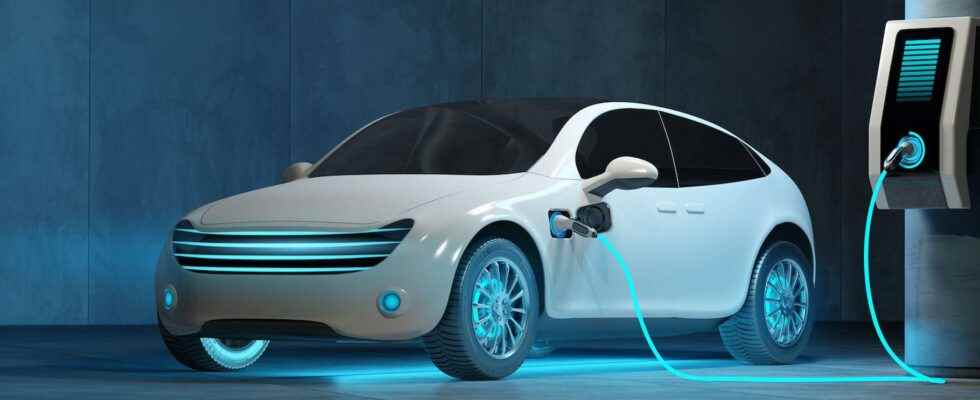A new bio-based material designed by Japanese researchers would reduce the charging time of the batteries of electric cars, which could thus gain followers. In addition, it could also be useful for our smartphones.
Japanese researchers have developed a method to increase the recharging capacities of batteries used in electric cars. The results show increased autonomy, suggesting the hope of being able to develop more durable batteries for cars and, why not, smartphones. While the general public has never been so aware of the climate crisis, the market for electric cars is booming.
More and more followers, the car drivers are however still faced with several brakes: the financial aspect, but also the availability of rechargeable terminals and the autonomy of these vehicles (approximately forty minutes of recharging against a few minutes for a full tank of gasoline on a classic car). A particularly pressing problem in Japan, one of the only countries in the world where sales ofautomobiles 100% electric are still struggling to take off, despite a marked appetite for hybrid cars. Added to this are the problems associated with the composition of batteries made from metals rare like lithium, whose extraction poses serious environmental and social concerns.
A carbon-based anode
It is to try to answer all these problems that a Japanese team of researchers from the Japan Advanced Institute of Science and Technology (JAIST) has developed a method of manufacturing anodes (which correspond to the negative poles on the batteries) allowing to recharge very quickly lithium-ion batteries. Scientists have developed a anode made of carbon. This polymer synthesized from materials raw materials of biological origin has been calcined in order to increase its nitrogen. A scientific process that has a specific goal: to design a rechargeable electric car battery in fifteen minutes maximum.
The tests of durability showed that batteries with this bio-based polymer retained around 90% of their initial capacity, even after 3,000 charge-discharge cycles at high rates. That is, a result considerably higher than the capacity retained by cells based on graphite, which most often consist of lithium-ion batteries classic.
Shorter charging times
The researchers also found that changes in the structure of the polymer could lead to even better performance, which would not only be useful for batteries in electric vehicles, but also for those of our smartphones.
” Much shorter charging times will hopefully encourage consumers to choose electric cars rather than gasoline-powered vehicles, which will ultimately lead to cleaner environments in all major cities around the world “, Estimates Professor Noriyoshi Matsumi, who directed thepublished study in Chemical Communications.
Other projects rechargeable batteries ultra-efficient are also in the pipeline. We think in particular of these researchers from Ford and Purdue University (United States) who presented last November a charging cable for an electric car of a new kind. Patent pending, this little wire promises to be able to recharge your electric vehicle almost as quickly as by filling it with gasoline, thanks to a revolutionary cooling process.
Interested in what you just read?
.
fs8
